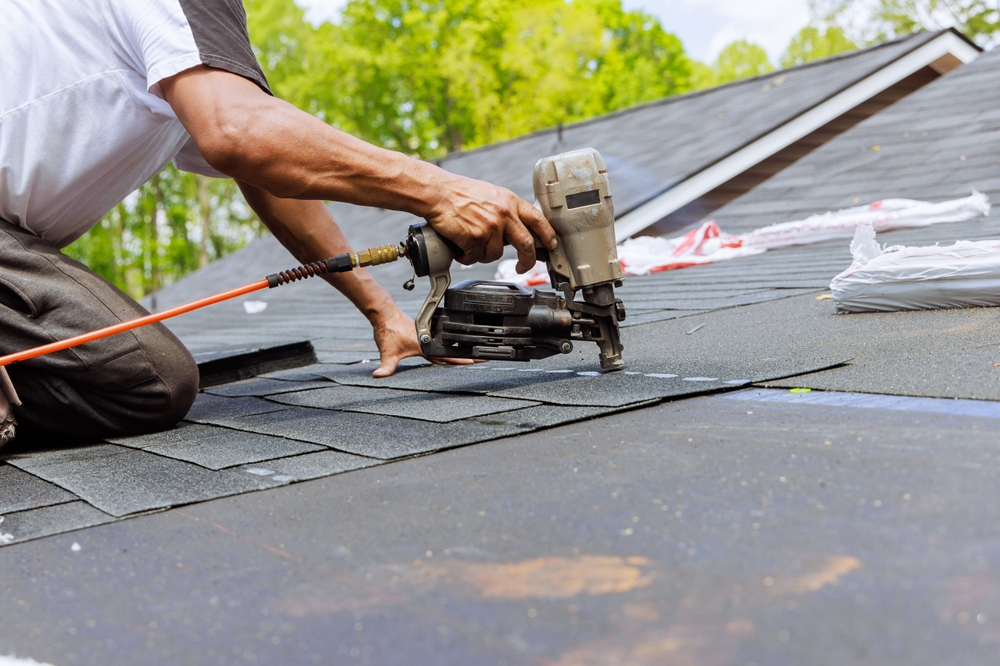You made a practical move by taking out a home equity loan to pay off your high-interest credit card debt. But now you've got a major home expense staring you in the face, and you’ve used all the available equity in your home. It’s a difficult situation, but you still have cards to play to help you cover the cost without risking your financial future.
How Urgent Is The Repair?
Figure out first how urgent the roof replacement really is. Are there active leaks or structural issues that could cause more damage? Or is the roof just old but still functional? If it’s not an absolute emergency, you may have time to save up or find more affordable repair options. If it is urgent, look at finding funding sources as soon as possible to prevent even worse damage later.
Get Three Different Bids
Get at least three written estimates from licensed roofing contractors. Prices can vary, and some contractors offer payment plans or seasonal discounts. Don’t pay large sums upfront or hire unlicensed workers. A proper estimate will lay out in detail exactly what you're facing and could present cost-saving options like partial roof repairs or using more affordable materials.
Check Your Home Insurance Coverage
Review your homeowner’s insurance coverage to see if there’s a chance your policy might pay for some or all of the roof costs. If the damage was due to a storm, fallen tree, or some other covered event, you could qualify for a claim. This can save you thousands and help you avoid borrowing more. Put in the claim as soon as possible and document all damages with photos.
Take Out A Personal Loan
With home equity off the table, a personal loan could be your best bet. These loans aren’t secured, but your credit score will have a big impact on your interest rate. Compare offers from banks, credit unions, and online lenders. Use prequalification tools to estimate rates without hurting your credit score. Honestly consider if you can really cover the monthly payment.
Look Into Local Assistance Programs
Depending on your income, age, or location, you might qualify for state or local home repair assistance. Some municipalities offer grants or zero-interest loans for essential home repairs like roofs. Start with your city or county housing department. Also, nonprofit organizations like Habitat for Humanity or Rebuilding Together may assist eligible homeowners with critical home projects.
Explore Contractor Financing
Ask the roofing companies if they offer any financing options. Some work with third-party lenders that have installment plans, often with promotional rates for the first few months. Always read the fine print with these. Know the interest rate after the promotional period expires, and avoid any arrangements carrying prepayment penalties or hidden fees.
Put Your Credit Cards Away
You may be tempted to put the cost on a credit card, especially if the repair is urgent. But unless you have a 0% APR card and a clear plan to repay the balance quickly, this can suck you right back into the debt vortex. Large credit card balances can also do major damage to your credit score, making it even harder for you to qualify for better financing in the future.
Review Your Budget And Income
While you explore your funding options, look for expenses you can cut or ways to boost your income. Maybe a temporary side hustle could help you bring in the extra money to cover the roof cost? Selling unused items, stopping discretionary spending, or picking up extra shifts or overtime here and there could give you a short-term buffer to reduce the amount you need to borrow.
Protect Your Long-Term Finances
It’s important to avoid robbing your future to fix a present problem. Don’t give in to the urge to tap retirement savings except as a last resort. Doing so could cause tax penalties and harm your long-term finances. Focus on one-step-at-a-time, low-risk options that won’t derail the financial recovery road that you’re travelling.
You May Also Like:
Handymen Reveal The Common Things People Pay For But Could Easily DIY










